Whitney’s Eyewitness Account at SIOP Boston, April 19-22, 2023
By Bruce Griffiths M.S.
SIOP always addresses many themes, and emerging technologies is always a huge one. I was particularly keen to learn more about the “Skills First” trend that has become ubiquitous in HR media over the last 6-12 months. Having read LOTS of articles on this, I certainly understand the gist: we should hire for skills rather than education and experience. This was a hot topic at SIOP.
Here are the salient points:
- Education and Experience don’t work. They are correlated with job performance at .10 and .07 respectively, based on the latest meta-analytic data (Sackett, et. al.).
- Both Education and Experience introduce bias (weeding people out based on either one frequently eliminates disproportionately large numbers of people, particularly those in certain socio-economic classifications).
- We use both Education and Experience as “proxies” to make certain assumptions about traits and capabilities. We do this because it’s easy, but it’s time to recognize that it’s doing more harm than good.
So, is this “Skills First” thing that business practitioners and I/O psychologists are focusing on worth revisiting? Yes, and here’s why:
- It’s Necessary. For most, applicant pools are tight, and shifting our mindset away from traditional criteria toward a broader strategy for determining whether someone is capable of doing the work opens up a lot of options that weren’t available to use before.
- It’s Fair. With intense attention being paid to DEI, the idea of removing screens with embedded bias and putting everyone on equal footing is appealing.
- It’s Progressive. Rather than staffing for “jobs”, we staff for “capabilities”. We create agile talent marketplaces within our organizations that allow us to get stuff done in less stodge ways. Also, it increases talent mobility within organizations and likely contributes to retention.
Editor’s Note
We thank Whitney for sharing the SIOP news, and we agree with her conclusions! Performance-based assessments in which skills are demonstrated are:
- Fairer
- More relevant
- Easier to validate
- Provide more incumbent flexibility to accommodate shifting job requirements
And, we’d also argue that the notion of skill sets being more predictive of job success (versus credentials) is a concept that has been around for quite some time in the form of competency models (as primarily defined by performance/behavior). We first cross-validated our Polaris® Competency Model skillsets over 20 years ago.
Thanks for your first-hand account, Whitney! If you’d like to read Whitney’s full blog on her SIOP experience, please click on this link. https://www.consultproactive.com/2023/05/01/the-state-of-skills-first-hiring/
Whitney Martin, of Proactive Consulting, is a measurement strategist. Her passions and expertise are in the field of surveys and assessments. Whitney has a Master’s Degree in Human Resource Measurement and Evaluation and has conducted extensive research on the predictive validity of various hiring assessment strategies. She has been a highly-rated speaker at SHRM’s National and Talent Management Conferences. Both Harvard Business Review and the Association for Talent Development have recruited her to write articles about assessments, and she has been quoted in HR Magazine as an expert on assessments. She is also a contributing author on three HR books and is a member of SIOP. She has 20 years of experience in the testing and assessment industry.
To learn more about OSI’s industry leading competency library, Polaris®, please contact Crystal Matsuura at cmatsuura@orgsysinc.om or 858.455.0923.


